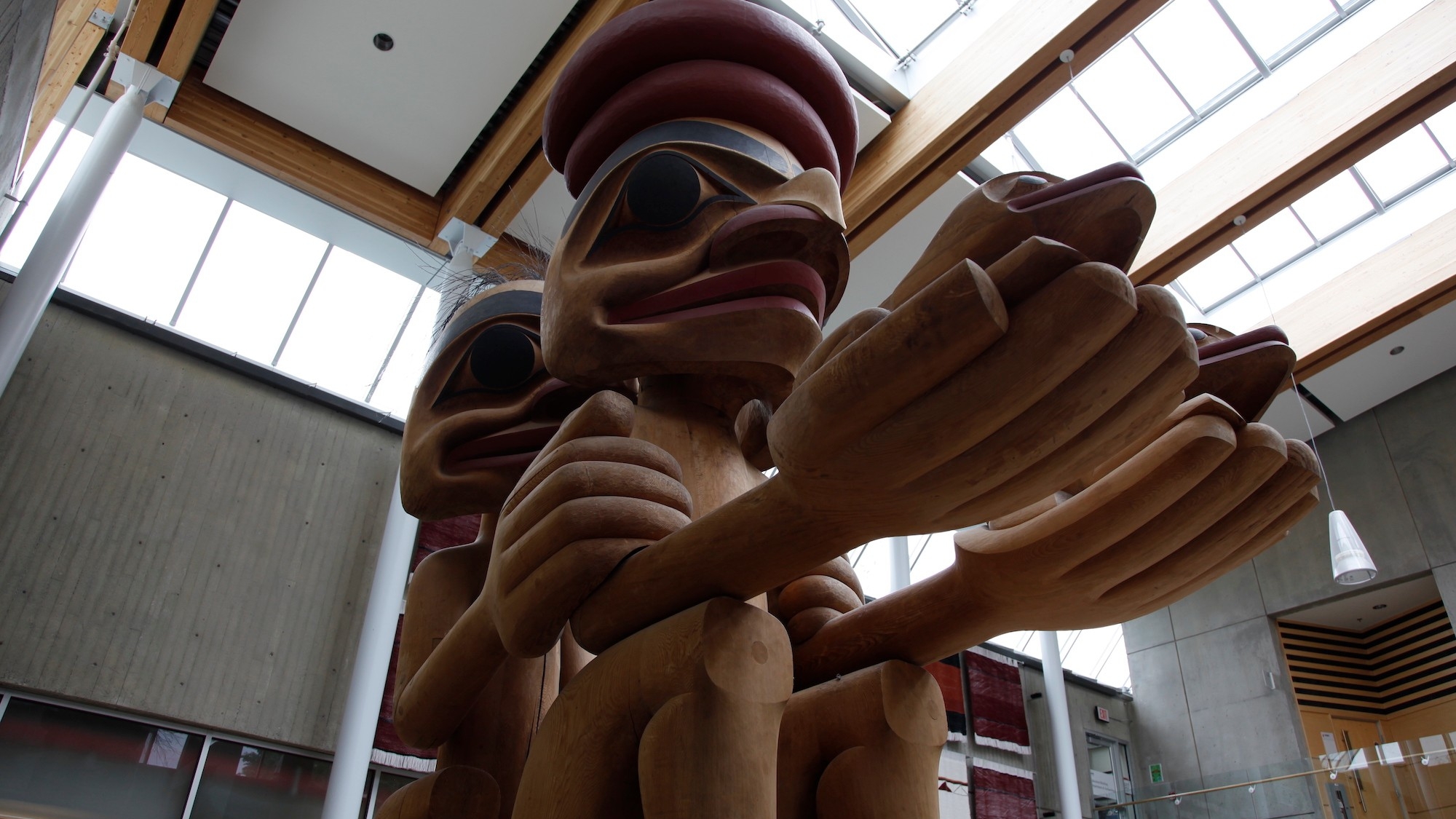- Faculty & Staff
- About
- Departments and programs
- Anthropology
- Applied Legal Studies
- Cognitive Science
- Criminology
- Economics
- English
- French
- French Cohort Program
- Gender, Sexuality, and Women's Studies
- Gerontology
- Global Asia
- Global Humanities
- Graduate Liberal Studies
- Hellenic Studies
- History
- Indigenous Languages
- Indigenous Studies
- International Studies
- Labour Studies
- Linguistics
- Philosophy
- Political Science
- Psychology
- Public Policy
- Social Data Analytics
- Sociology
- Urban Studies
- World Languages & Literatures
- Undergraduate
- Graduate
- Research
- Teaching
- News
- Community
- FASS at Surrey
- Next steps for new students (redirect)
FASS News
A decolonial academy is possible: Reconciling Curriculum Grants in SFU’s Faculty of Arts and Social Sciences

Indigenous Wisdoms for Psychology. Indigenous Perspectives on Economic Development and Land and Water Rights. Indigenous Cultural Awareness and Decolonization in the Canadian Public Policy Curriculum.
These may not look like common university course titles. That’s because they’re not common; they are the creation of FASS instructors. We congratulate Rachel Fouladi and Michael Schmitt (SFU’s Department of Psychology), Martin Santamaria (SFU’s Department of Economics), and Kora DeBeck and Natahnee Winder (SFU’s School of Public Policy), with the above successful proposals.
Creativity isn’t limited to course work: a Visiting Fellowship in Indigenous Studies (awarded to Bryan Myles, Bill Reid Centre) was a successful grant application that continues to extend academia’s comprehension of teaching and learning in a decolonial manner.
These proposals, and many more like them, are funded by a grant program specifically designed by SFU’s Faculty of Arts and Social Sciences (FASS) to move decolonial ideas into reconciliatory reality; to put into action FASS’s commitment to decolonization and reconciliation.
Grants specifically designed to move decolonial ideas into reconciliatory reality.
Proposed in FASS’s five-year academic plan, Reconciling Curriculum Grants launched in 2019 to advance a reconciliatory approach to the university’s curriculum. Following a pause during the pandemic, the grants are back and have already awarded more this year than in any previous year.
Open to all FASS continuing faculty members who want to address the ongoing legacies of colonialism and the work of reconciliation, Reconciling Curriculum Grant proposals focus on one of five areas:
- Micro Research and Teaching Development
- Lower Division Courses Advancing Decolonization/ Reconciliation
- Upper Division (Graduate) Courses
- Indigenous Cultural Awareness Training and Professional Development
- Community-based Partner Development
For more on each of the five categories, including grant amounts, visit the grant information page.
Decolonization is not a one-time operation; it is a lifelong journey of dismantling and healing.
When developing the proposal, instructors are asked to consider the following criteria for adjudication:
- Resonance
- Creativity and Academic Value
- Originality, Diversity and Breadth
- Cultural Humility and Sensitivity
- Potential for Engagement
We invite you to read the full definitions of the five criteria for adjudication on our website, along with more information on how to apply. Information about the 2024 submission deadlines will soon be announced. Please keep your eye on the webpage for that information. You can also contact Indigenous Relations Director, Tim Michel, and Associate Dean, Kate Slaney, to ask questions about the grants.
We look forward to the growing legacy of the Reconciling Curriculum Grants. The creativity of FASS instructors is matched by our Faculty’s commitment to reconciliation and decolonization. When SFU’s students learn through a reconciliatory lens, the communities in which they live and work—now and in the future—will continue to benefit.
Decolonization is not a one-time operation; it is a lifelong journey of dismantling and healing. We hope that by reconciling the curriculum, we strengthen individuals and communities on that journey.

